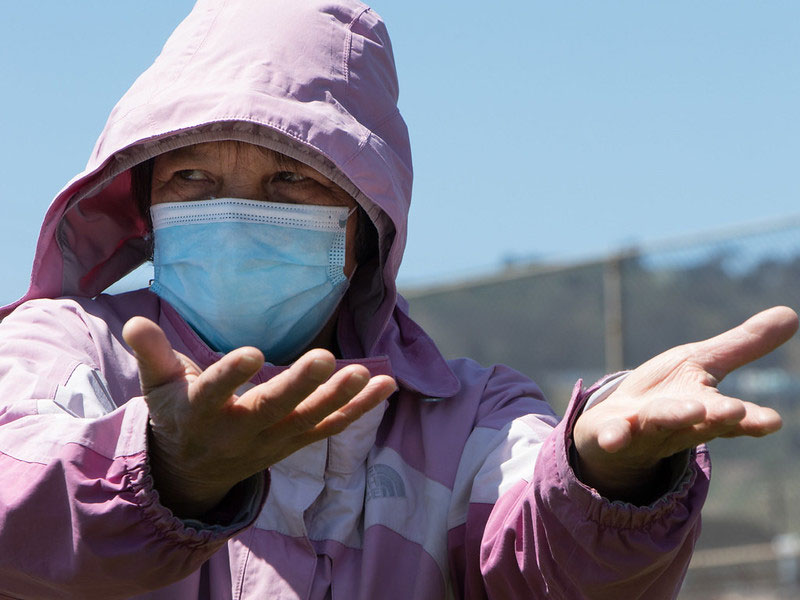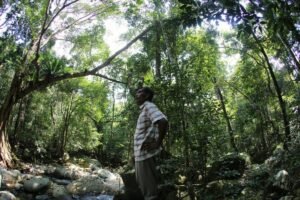
Every time is different. Every tragedy, every act of violence, has its own harrowing details. Its own set of sorrows and injustices.
And, at the same time, it is all so familiar.
After the Atlanta mass shootings, a colleague said, “I don’t know what it is about this time. It just feels so different. The way that it sits in my body. The way that it could have been me, if I were just walking down one of those streets.”
And I know how she feels. For one, there are the ways in which women have been targeted in this current crisis. Of the 6,600 hate crimes reported from March 19, 2020, to March 31, 2021 (see Stop AAPI Hate’s report here), approximately two-thirds of the victims have been women.
But it’s more than the numbers. It’s the ways in which Asian women are gendered and sexualized; the ways in which the history of colonialism, militarism, and war sits in our bodies; the ways in which we are seen (and not seen), even when we are just walking down the street.
Especially in the specificity of our current context—in these days of the “Kung Flu” “China virus”—this time is different, unique.
And, at the same time, it is deeply familiar.
I remember how it was to live in New York City after the attacks on 9/11. I remember the feeling in the pit of my stomach—the anger and the sadness—when I learned that Balbir Singh Sodhi was shot and killed four days after 9/11; when I learned that Gurdwara Gobind Sadan, the Sikh Temple in Palermo, New York, was burnt down two months after 9/11. There were hundreds of other stories that emerged soon after—attacks on individuals, homes, communities, and neighborhoods. There were stories of women who were so scared to leave home that we had to send food to them at home. For years after 9/11, the feeling in the pit of my stomach almost never left. It was present hundreds and hundreds of times over, in all the hate crimes, reported and not, in the angry stares, in the daily microaggressions. It is all too familiar (and still ongoing, as the recent shootings in Indianapolis prove).
It is a similar feeling to the anger and sadness I feel watching the videos of the murders of George Floyd, of Eric Garner, of learning of the deaths of Akai Gurley, of Breonna Taylor. Of seeing pictures of children in cages at the border. All of this leaves you wondering who is next. An 89-year-old grandmother? A parent pushing a stroller down the street? These have already happened.
This May, this Asian/Pacific American Heritage Month, in the midst of so much racist violence directed towards our communities and in the world around us, it is hard not to be pessimistic, frustrated, burnt out, and disillusioned.
Thus, like so often before, I take inspiration from our communities, especially in the community of AAPI women who, moving forward, must be centered in conversations about community-driven solutions for safety.
So, this May, I want to lift up the voices of AAPI women who have inspired me during this time of crisis, women who have spoken eloquently and deeply about our current moment—about how, in this time of violence and threat of harm to our own bodies, we can only find true safety when there is justice for all.
Some of these quotes are from listening sessions National CAPACD has done with our member organizations, some are from interviews and personal conversations, and some are simply from what I’ve been reading in the press or social media. All quotes are from people within my social and professional network, from women I respect and am proud to lift up.
“As Asian American community-based organizations, we need to build our communities in a responsible way and make racial justice a core focus of our work. We have a responsibility as Asian Americans to recognize and know that this mass shooting is part of a larger narrative and system that marginalizes communities beyond our own. Anti-blackness, misogyny, and xenophobia are fueled by the same systems of oppression. If we and our government are trying to respond responsibly, we need to push for programs and policies that do not criminalize other communities of color.”—Inhe Choi, HANA Center, Chicago
…
“We know we can’t talk about anti-Asian violence without talking about anti-Blackness. So it’s important for us to be really clear that these are not separate issues and that we stand in solidarity…”—Bo Thao-Urabe, CAAL, Minneapolis
…
“From a really microscopic level to a large macro level, if we don’t have relationships with each other, if we don’t trust each other, we’re never really going to be safe.”—Alvina Wong, APEN, Oakland
…
Sign up for our free newsletters
Subscribe to NPQ's newsletters to have our top stories delivered directly to your inbox.
By signing up, you agree to our privacy policy and terms of use, and to receive messages from NPQ and our partners.
“For first generation immigrants, we need to explain what anti-Blackness means and what history there is in the community and what white supremacy history is.… And for true progress and safety, we need comprehensive investments—in mental health services, job development, affordable housing, education, and youth engagement.”—Grace Chan McKibben, CBCAC, Chicago
…
“We have a pre-existing culture of deferring to older Asian leaders—and they have done so much. But now we’re seeing this cohort of younger women leaders being more visible and louder, pushing for more progressive changes… We need systemic change because even if we come up with solutions to stop violence or fear of violence against Asian Americans in public spaces, there are still so many challenges and issues of access and opportunity that we need to address. We need equitable access to housing, diverse representation, living wages, comprehensive social supports like paid sick leave for all—these solutions that address systemic issues would support all communities of color, all marginalized communities.”—Angie Liou, ACDC, Boston
…
“Safety is about people having dignity in their lives, having connection with one another, and having access to resources that meet each other’s needs.”— Vivian Huang, APEN, Oakland
It is interesting to note the fact that some of these quotes were from national media sources; the national media is giving our community a platform that we haven’t had before. In a twisted way, this crisis has been a good period for AAPI nonprofit organizations. We’ve had a level of attention that we haven’t had before. Many groups in our network report that donations are up. Our own donations are up.
The more visible the violence against our communities, against our elders, and against our most vulnerable and marginalized community members, the more our issues are at the forefront, the more dramatic the headline is—the more we seem to benefit.
But this is wrong. It should not be this way.
Of course, we are happy to finally hear our voices on a national stage. We are grateful for our donors’ generosity. We will put the resources to good use. We feel the love and appreciate the concern.
But we do not want to be the flavor of the month.
We do not want a model of nonprofit funding where we are fighting for crumbs, looking to cynically exploit the next tragedy. When we rise, we want everybody else to rise with us. Our sorrows are shared. Our paths forward should be shared too.
As expressed so eloquently in so many of the quotes above, our safety—our well-being—cannot come at the expense of other communities.
We want broad and diverse investments in leadership, in capacity building, in building inclusive and durable networks. In comprehensive community services and community-based assets and infrastructure. In coalition building. In movement building.
The social sector needs to break out of our scarcity mindset. This is not simply about growing the pie, though the pie needs to grow. We need a complete reordering of priorities from a competitive, outcome-driven model of production to a cooperative, values-driven model of social transformation.
Never before have I seen more clearly and urgently the need and the promise of these models of leadership.
In Atlanta, Aparna Bhattacharyya of Raksha, Inc., talks about how, even in local conversations about the response to the shootings, “the sexism and marginalization of our communities is still happening. There’s a lot of silencing and not incorporating our voices, especially in the continued minimizing of AAPI women. It’s frustrating.” And yet, in the group of Atlanta women who have come together to lead the AAPI response, Aparna says, “We all support each other. We are not invisibilized in this space. We work together without worrying about who gets the credit.”
This is the model of leadership I want—distributed, supportive, relational, focused on justice, not on personal gain. When we talk about problems our own communities face, we should also talk about the problems other communities face. When we propose solutions for our communities, we should propose solutions that uplift all marginalized communities. In this vision, in these values, in this community of women, this is where I find inspiration in these violent and disrupted times.












